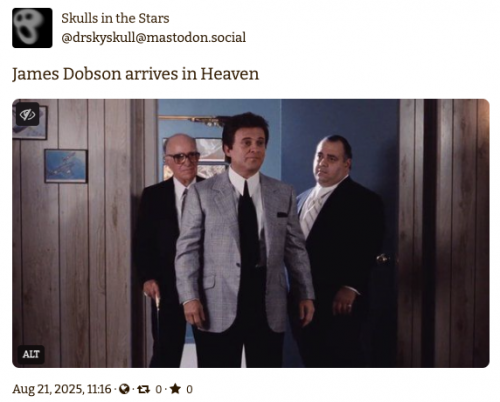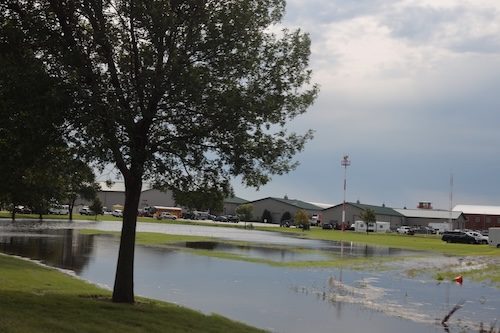I got to go outside! Actually, I had to go outside, since I have a ravenous population of spiders in my lab that must be fed, or there will be consequences. The one problem is that I’m still stuck in a wheelchair, which turned out to be almost no problem at all. The only steps I had to deal with were 3 short steps just outside my back door, and the rest of the way was all ramps, all the way to the science building elevator. Then, of course, I had my assistant Mary to push me there and back.
The only real problem was that, as always it seems, we had another major thunderstorm roll through, with skies dark as night and thunder and lightning and a drenching rain. I think it’s fine that my return to the lab would be heralded with spooky nightmare weather.
Now the spiders are all snug in their webs, happily crunching through mealworms and flies, and all is right in the world.















